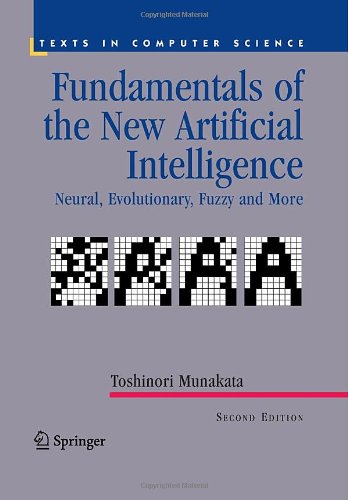

Most ebook files are in PDF format, so you can easily read them using various software such as Foxit Reader or directly on the Google Chrome browser.
Some ebook files are released by publishers in other formats such as .awz, .mobi, .epub, .fb2, etc. You may need to install specific software to read these formats on mobile/PC, such as Calibre.
Please read the tutorial at this link: https://ebookbell.com/faq
We offer FREE conversion to the popular formats you request; however, this may take some time. Therefore, right after payment, please email us, and we will try to provide the service as quickly as possible.
For some exceptional file formats or broken links (if any), please refrain from opening any disputes. Instead, email us first, and we will try to assist within a maximum of 6 hours.
EbookBell Team

5.0
50 reviewsArtificial intelligence—broadly defined as the study of making computers perform tasks that require human intelligence—has grown rapidly as a field of research and industrial application in recent years. Whereas traditionally, AI used techniques drawn from symbolic models such as knowledge-based and logic programming systems, interest has grown in newer paradigms, notably neural networks, genetic algorithms, and fuzzy logic.
The significantly updated second edition of Fundamentals of the New Artificial Intelligence thoroughly covers the most essential and widely employed material pertaining to neural networks, genetic algorithms, fuzzy systems, rough sets, and chaos. In particular, this unique textbook explores the importance of this content for real-world applications. The exposition reveals the core principles, concepts, and technologies in a concise and accessible, easy-to-understand manner, and as a result, prerequisites are minimal: A basic understanding of computer programming and mathematics makes the book suitable for readers coming to this subject for the first time.
Topics and features:
• Features completely new material on simulated annealing, Boltzmann machines, and extended fuzzy if-then rules tables [NEW]
• Emphasizes the real-world applications derived from this important area of computer science
• Provides easy-to-comprehend descriptions and algorithms
• Updates all references, for maximum usefulness to professors, students, and other readers [NEW]
• Integrates all material, yet allows each chapter to be used or studied independently
This invaluable text and reference is an authoritative introduction to the subject and is therefore ideal for upper-level undergraduates and graduates studying intelligent computing, soft computing, neural networks, evolutionary computing, and fuzzy systems. In addition, the material is self-contained and therefore valuable to researchers in many related disciplines. Professor Munakata is a leading figure in this field and has given courses on this topic extensively.